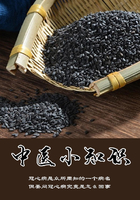We got to Liege at nightfall on the next day, and I contrived to make Madame d'Urfe stay there the day following, wishing to get horses to take us through the Ardennes, and thus to have the charming Mimi longer in my possession.
I rose early and went out to see the town. By the great bridge, a woman, so wrapped up in a black mantilla that only the tip of her nose was visible, accosted me, and asked me to follow her into a house with an open door which she shewed me.
"As I have not the pleasure of knowing you," I replied, "prudence will not allow me to do so."
"You do know me, though," she replied, and taking me to the corner of a neighbouring street she shewed me her face. What was my surprise to see the fair Stuart of Avignon, the statue of the Fountain of Vaucluse. I was very glad to meet her.
In my curiosity I followed her into the house, to a room on the first floor, where she welcomed me most tenderly. It was all no good, for I felt angry with her, and despised her advances, no doubt, because I had Mimi, and wished to keep all my love for her.
However, I took three louis out of my purse and gave them to her, asking her to tell me her history.
"Stuart," she said, "was only my keeper; my real name is Ranson, and I am the mistress of a rich landed proprietor. I got back to Liege after many sufferings."
"I am delighted to hear that you are more prosperous now, but it must be confessed that your behaviour at Avignon was both preposterous and absurd. But the subject is not worth discussing.
Good day, madam."
I then returned to my hotel to write an account of what I had seen to the Marquis Grimaldi.
The next day we left Liege, and were two days passing through the Ardennes. This is one of the strangest tracts in Europe: a vast forest, the traditions of which furnished Ariosto with some splendid passages.
There is no town in the forest, and though one is obliged to cross it to pass from one country to another, hardly any of the necessaries of life are to be found in it.
The enquirer will seek in vain for vices or virtues, or manners of any kind. The inhabitants are devoid of correct ideas, but have wild notions of their own on the power of men they style scholars.
It is enough to be a doctor to enjoy the reputation of an astrologer and a wizard. Nevertheless the Ardennes have a large population, as I was assured that there were twelve hundred churches in the forest. The people are good-hearted and even pleasant, especially the young girls; but as a general rule the fair *** is by no means fair in those quarters. In this vast district watered by the Meuse is the town of Bouillon--a regular hole, but in my time it was the freest place in Europe. The Duke of Bouillon was so jealous of his rights that he preferred the exercise of his prerogatives to all the honours he might have enjoyed at the Court of France. We stayed a day at Metz, but did not call on anyone; and in three days we reached Colmar, where we left Madame d'Ache, whose good graces I had completely won. Her family, in extremely comfortable circumstances, received the mother and daughter with great affection. Mimi wept bitterly when I left her, but I consoled her by saying that I would come back before long. Madame d'Urfe seemed not to mind leaving them, and I
consoled myself easily enough. While congratulating myself on having made mother and daughter happy, I adored the secret paths and ways of Divine Providence.
On the following day we went to Sulzbach, where the Baron of Schaumburg, who knew Madame d'Urfe, gave us a warm welcome. I
should have been sadly boared in this dull place if it had not been for gaming. Madame d'Urfe, finding herself in need of company, encouraged the Corticelli to hope to regain my good graces, and, consequently, her own. The wretched girl, seeing how easily I had defeated her projects, and to what a pass of humiliation I had brought her, had changed her part, and was now submissive enough. She flattered herself that she would regain the favour she had completely lost, and she thought the day was won when she saw that Madame d'Ache and her daughter stayed at Colmar. But what she had more at heart than either my friendship or Madame d'Urfe's was the jewel-casket; but she dared not ask for it, and her hopes of seeing it again were growing dim. By her pleasantries at table which made Madame d'Urfe laugh she succeeded in giving me a few amorous twinges; but still I did not allow my feelings to relax my severity, and she continued to sleep with her mother.
A week after our arrival at Sulzbach I left Madame d'Urfe with the Baron of Schaumburg, and I went to Colmar in the hope of good fortune. But I was disappointed, as the mother and daughter had both made arrangements for getting married.
A rich merchant, who had been in love with the mother eighteen years before, seeing her a widow and still pretty, felt his early flames revive, and offered his hand and was accepted. A young advocate found Mimi to his taste, and asked her in marriage. The mother and daughter, fearing the results of my affection, and finding it would be a good match, lost no time in giving their consent. I was entertained in the family, and supped in the midst of a numerous and choice assemblage; but seeing that I should only annoy the ladies and tire myself in waiting for some chance favour if I stayed, I bade them adieu and returned to Sulzbach the next morning. I found there a charming girl from Strasburg, named Salzmann, three or four gamesters who had come to drink the waters, and several ladies, to whom I shall introduce the reader in the ensuing chapter.















